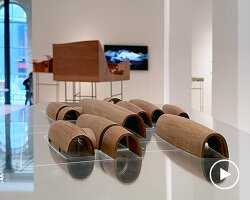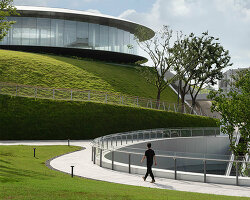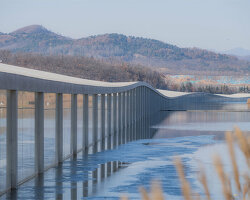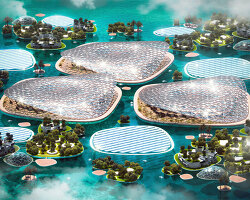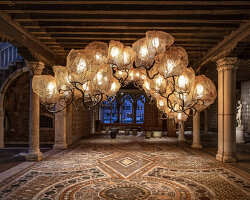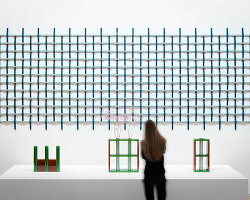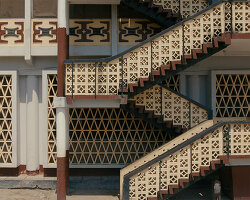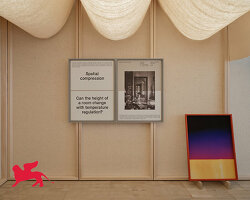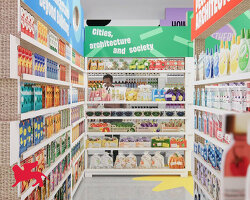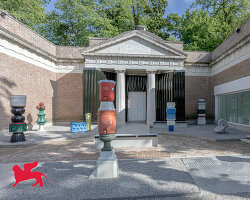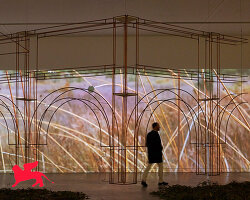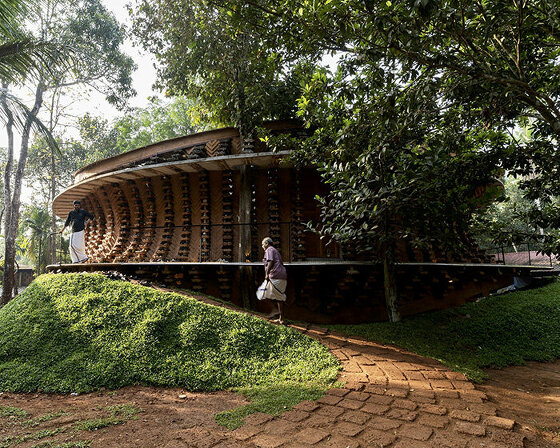Danish Pavilion: ‘Coastal Imaginaries’ at the Venice Biennale
The Danish Pavilion explores climate change through various mediums at the 18th Venice Architecture Biennale, which runs from May 20 to November 26, 2023. Named ‘Coastal Imaginaries’, the exhibition synthesizes research conducted from Mitigating Sea Level Rise, to realize the large-scale model ‘Copenhagen Islands’ by Schønherr, and an immersive ‘Coastal Landscape’ by Christian Friedländer. During the Biennale’s pre-opening days, designboom sat down with head curator Josephine Michau, and co-curator Rikke Juul Gram from Schønherr, to discuss the making of their pavilion.
‘We created an exhibition investigating how to mitigate sea level rise and the frequency of storm surges that are intensifying. Rising sea levels are a potential fate that Copenhagen shares with Venice, along with many coastal cities. At the Danish pavilion we are giving a logical proposal towards how architecture relates to these major challenges,’ explains Josephine Michau on the Coastal Imaginaries exhibition.
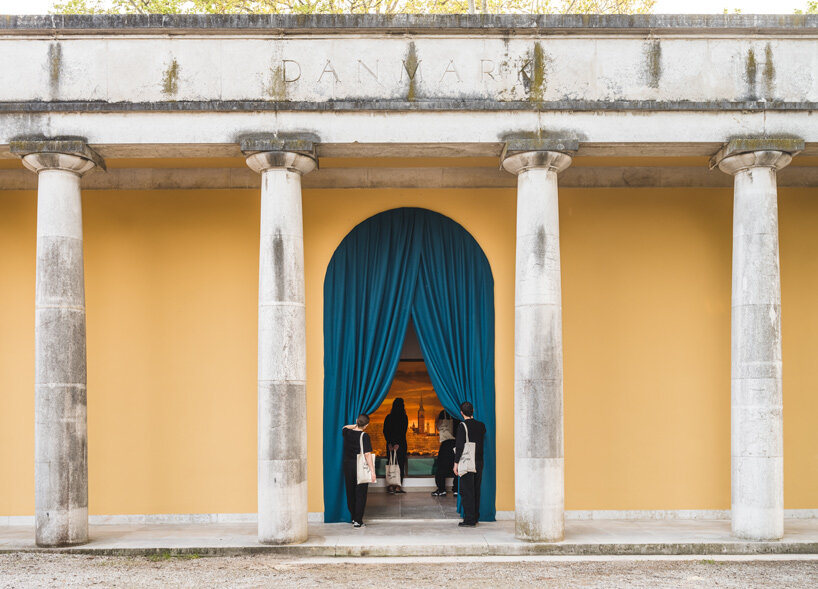
exploring climate change through various mediums | image © Danish Architecture Centre by Rasmus Hjortshøj
responding to data with design solutions
The Danish Pavilion highlights innovative design solutions for coastal landscapes that are based on detailed research, accompanied by large-scale 3D dioramas. The exhibition also features examples of architect-designed solutions through film and prototypes. International visitors to the pavilion are given an impressive transformational experience that appeals to both body and mind.
‘The different kinds of data and measurements collected by our team of researchers all over the planet are extremely important. In design, we need evidence that these mechanisms that actually work with nature. We add different layers of thoughts and methods; for example adding more biodiversity, being closer to nature, developing the suburbs, but first of all comes safety. Not feeling safe is what keeps most people awake at night,’ describes Rikke Juul Gram, on the significance of research data in climate responsive design.
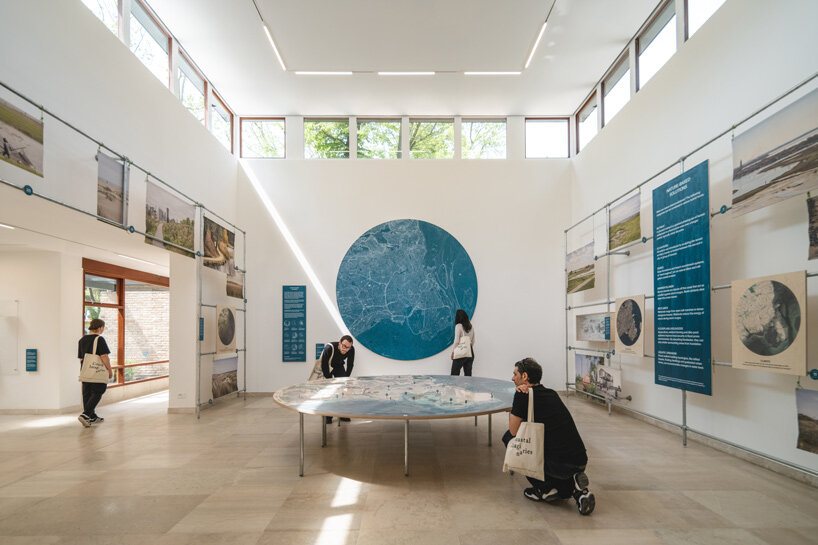
large-scale model ‘Copenhagen Islands’ realized by Schønherr | image © Danish Architecture Centre
Danish pavilion ‘combines methodologies across disciplines’
Josephine Michau shows a catalog of concrete proposals for future life along the coastline, aiming to raise awareness on the issues of constructing near coastlines and the effects of climate change. Rooted in seven nature-based solutions, the design concepts span vast time and landscapes and address today’s urgent challenges of storm surges and flooding. Coastal Imaginaries consists of mechanisms for landscape resilience, carbon sinks, cultivation areas, materials banks, biodiversity, and new natural spaces for socializing and recreation.
‘We hope that visitors take away with them an understanding of reading the landscape. In one big, beautiful room, we present the research to inform practitioners, bringing in different disciplines and combining methodologies to find new innovative ways of inhabiting our planet. We need to talk and inspire each other across disciplines and not work in silence,’ shares Michau on her hopes for the Danish Pavilion.
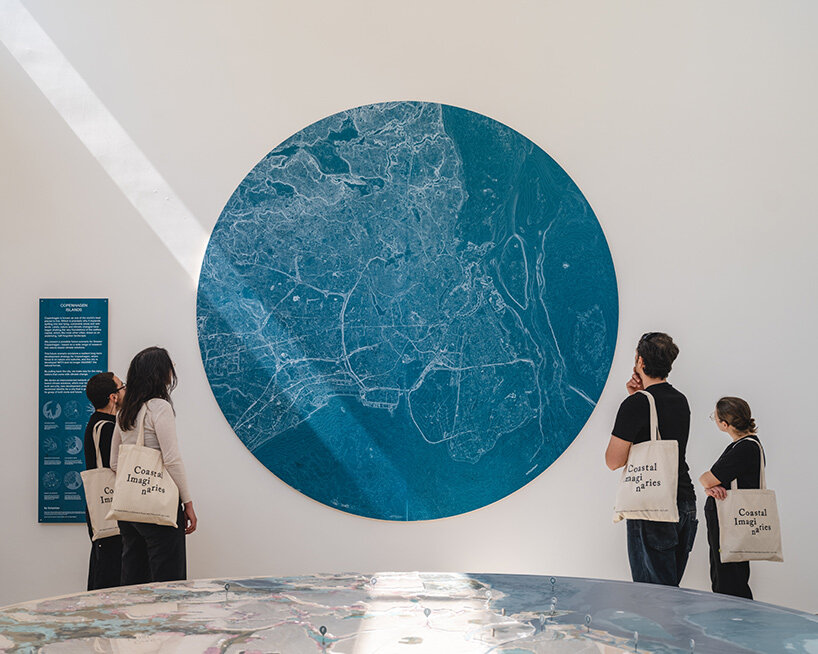
design solutions for coastal landscapes are based on detailed research | image © Danish Architecture Centre
Schønherr aims to create hope, not fear
Landscape architectural firm Schønherr took on the question, how can we develop cities in harmony with nature? Copenhagen, named by UNESCO as the 2023 World Capital of Architecture, currently has its existence threatened by rising sea levels. For Copenhagen Islands, Schønherr develops a new strategy for the city, where the capital’s urban plan from 1947 is replaced with one based on the islets that arise in a delta between seawater and rainwater.
‘We don’t want to be too fear driven, it is very human to not think ahead because of fear. There is a beautiful poetry to the present, that we are here, living right now, and things are good so we shouldn’t be too afraid. At the same time, we need to find directions to not create fear, but to create hope and change into a better world. In our model, everybody who lives in Copenhagen can find their own house and see what state it will be in, whether it is underwater,’ elaborates Rikke Juul Gram on the Schønherr contribution.
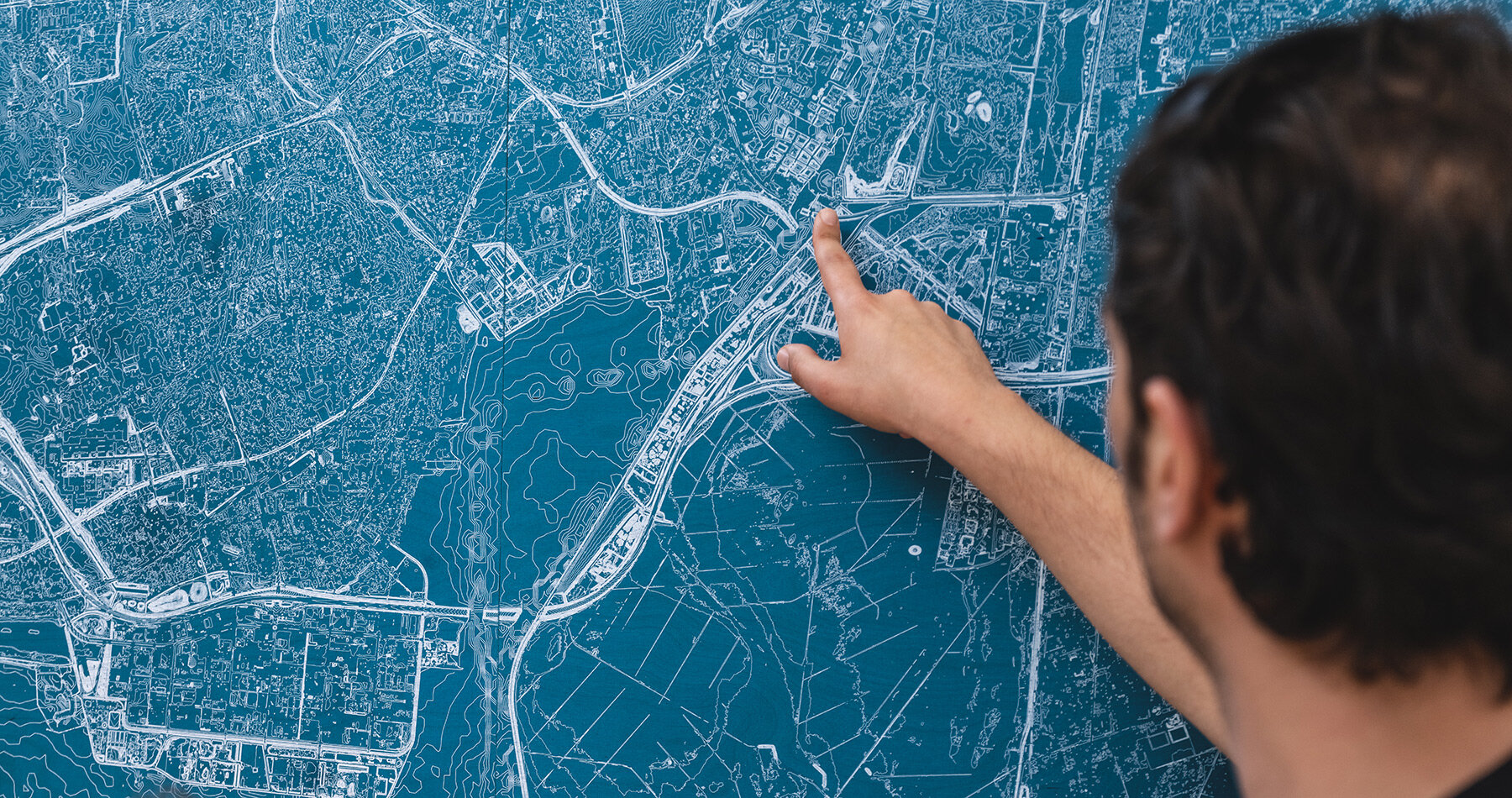
Schønherr took on the question, how can we develop cities in harmony with nature? | image © Danish Architecture Centre
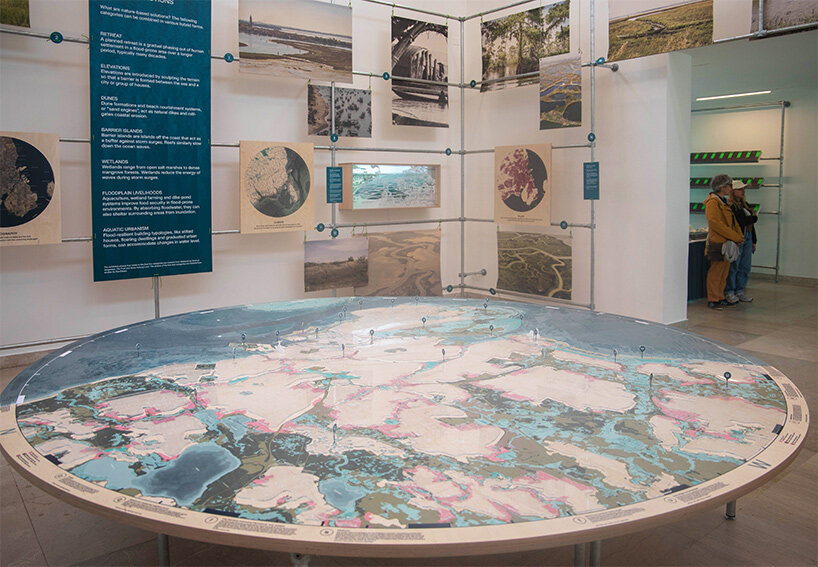
Schønherr develops a new strategy for the city of Copenhagen | image © designboom
The paradigm shift from anthropocentric to ecocentric
The pavilion’s largest exhibition room features a dramatically-staged Coastal Landscape of the future created by set designer Christian Friedländer. Visitors to Coastal Landscape are immersed in the diorama which provides an understanding of the characteristics associated with nature-based design. In a dramatized version of the relationship between wet and dry, between water and land, nature and culture and their interdependence, climate change is experienced on a 1:1 scale.
‘It’s not just survival, it’s also thriving. That is what the nature-based long-term design solutions offer. There’s a whole paradigm shift that we are presenting in the exhibition from the anthropocentric standpoint, with humans as a primary geological force, into a more ecocentric way of thinking. This is not a national problem, this is a global problem. If we can switch the mind view of visitors to the pavilion, even a little bit, that would be a nice achievement,’ illustrates Josephine Michau on the paradigm shift that Coastal Imaginaries promotes.
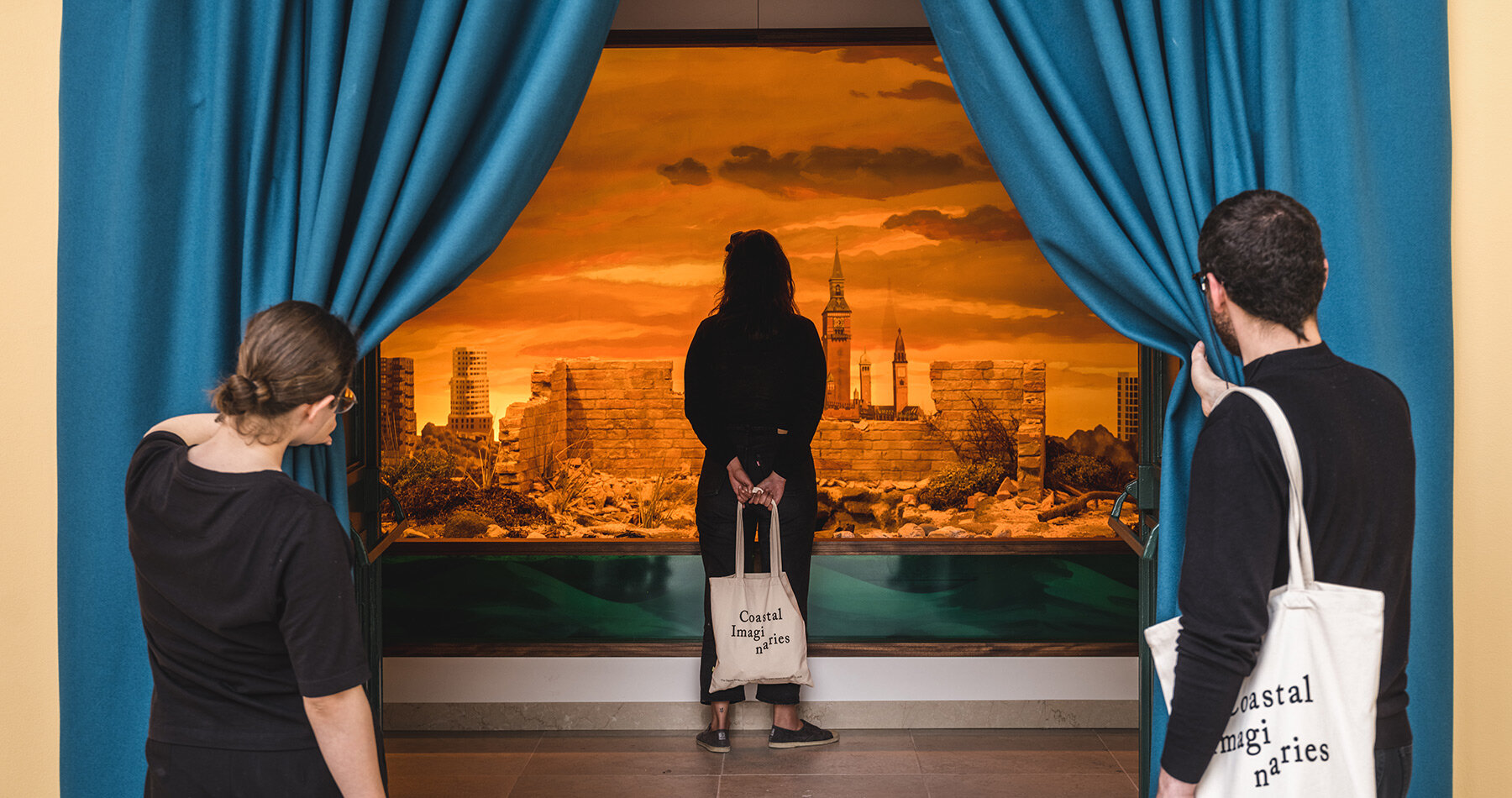
the pavilion’s largest exhibition room features a dramatically-staged ‘Coastal Landscape’ installation | image © Danish Architecture Centre
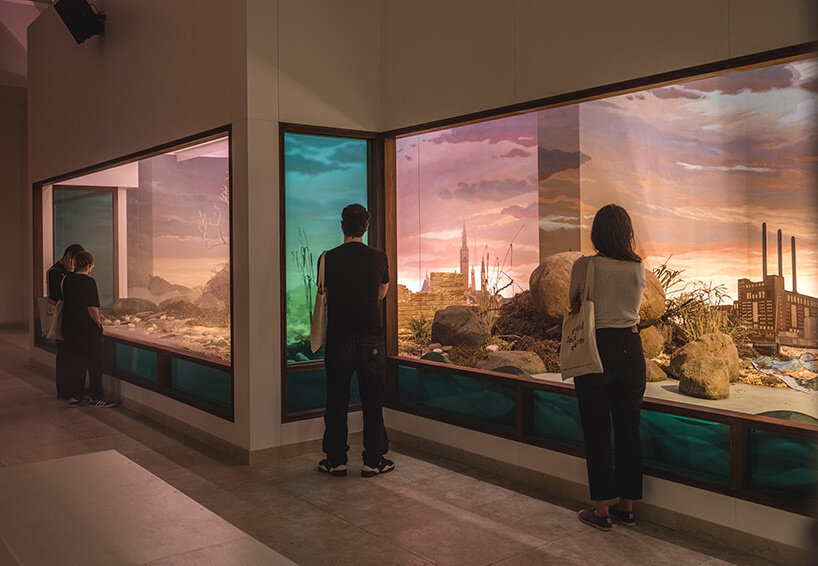
visitors to Coastal Landscape are immersed in the diorama | image © Danish Architecture Centre
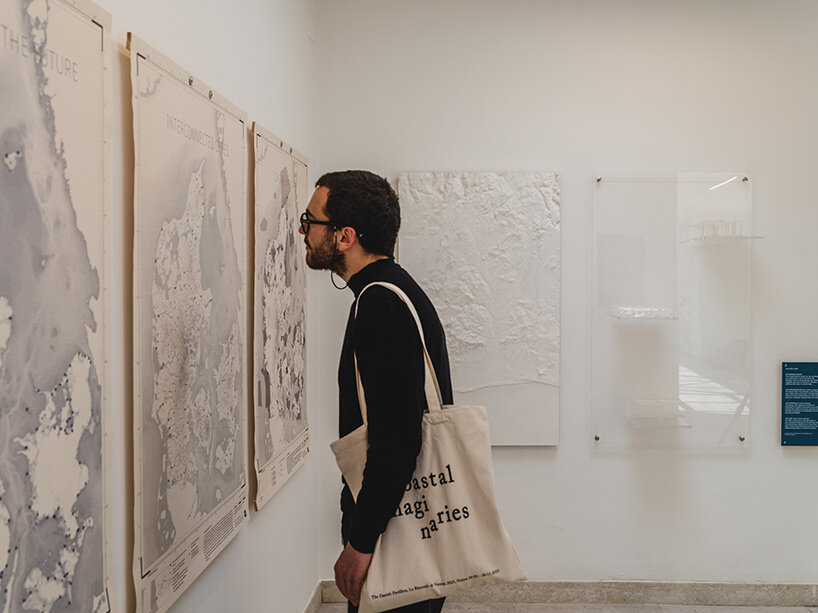
research and forecasts are presented alongside solutions | image © Danish Architecture Centre
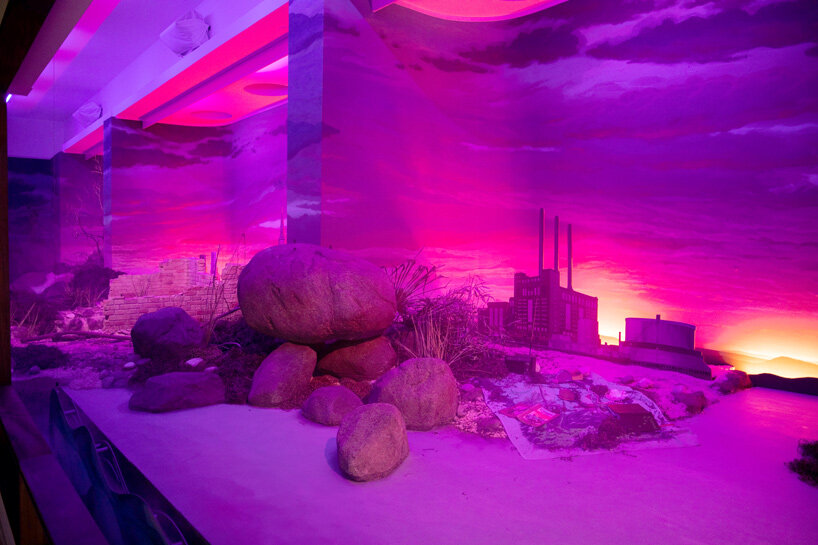
the immersive experience is created by set designer Christian Friedländer | image © designboom

climate change is experienced on a 1:1 scale | image © Danish Architecture Centre
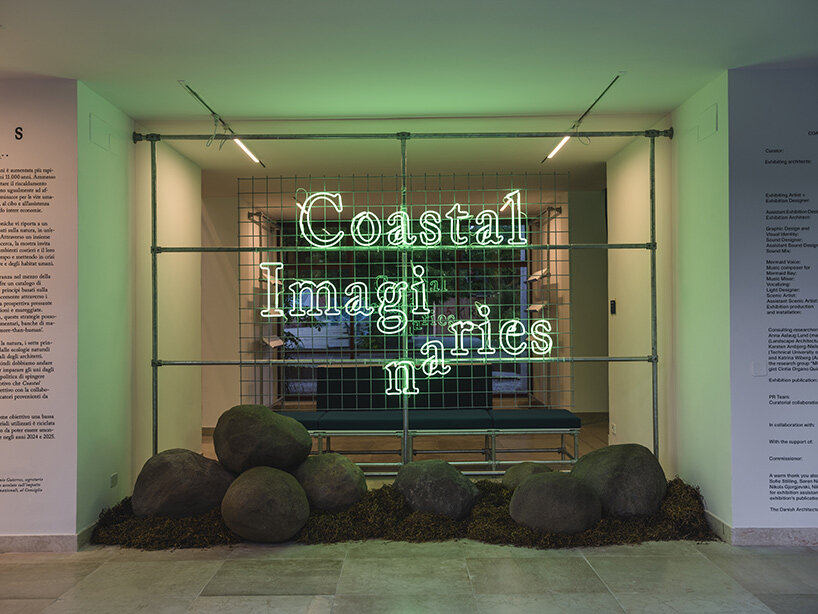
find Coastal Imaginaries in the Venice Architecture Biennale from May 20 to November 26, 2023| image © Danish Architecture Centre
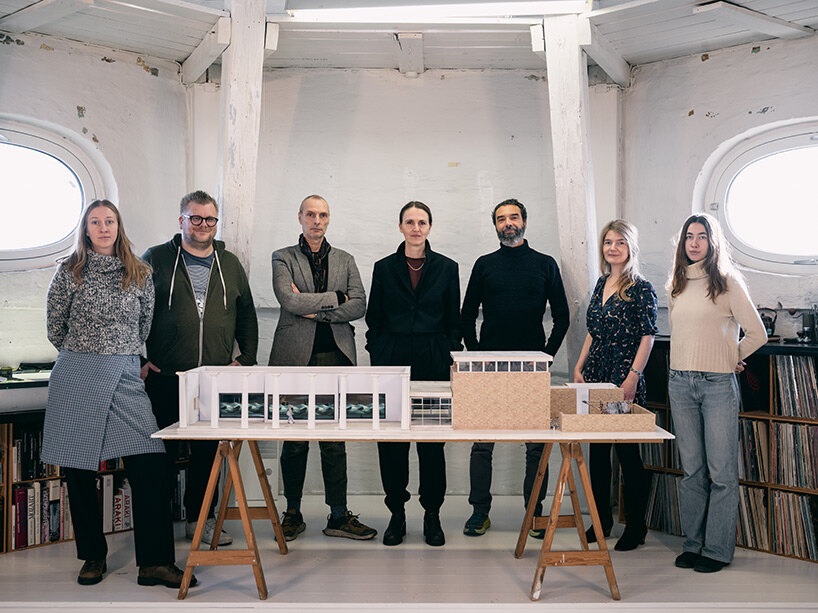
team image: from left, Alexandra Wedderkopp Emelianov, Peter Albtrechtsen, Christian Friedländer, Josephine Michau, David Garcia, Anna Aslaug Lund, Ellen Leer | image © Danish Architecture Centre
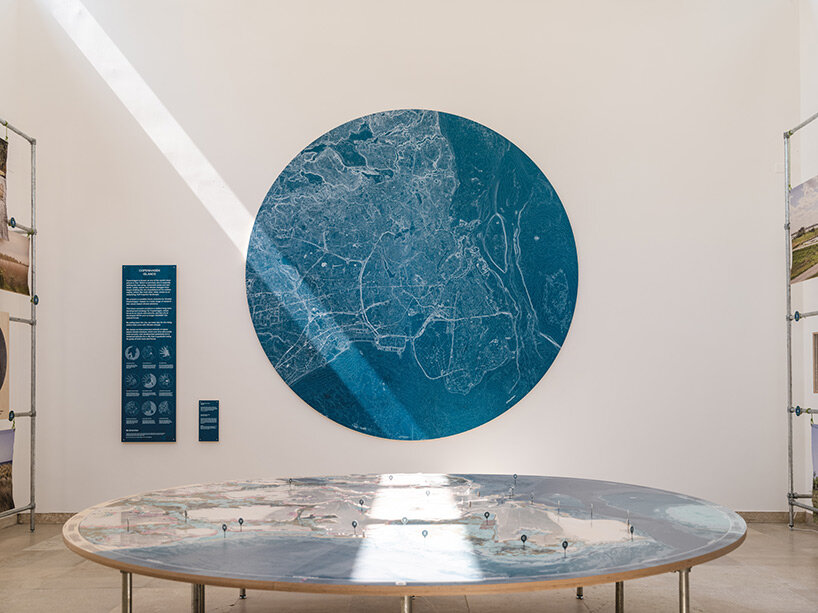
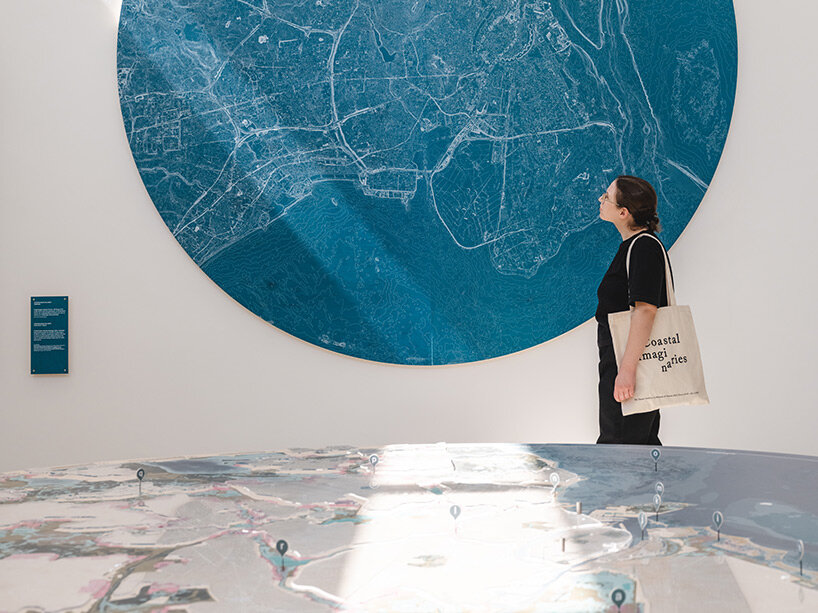
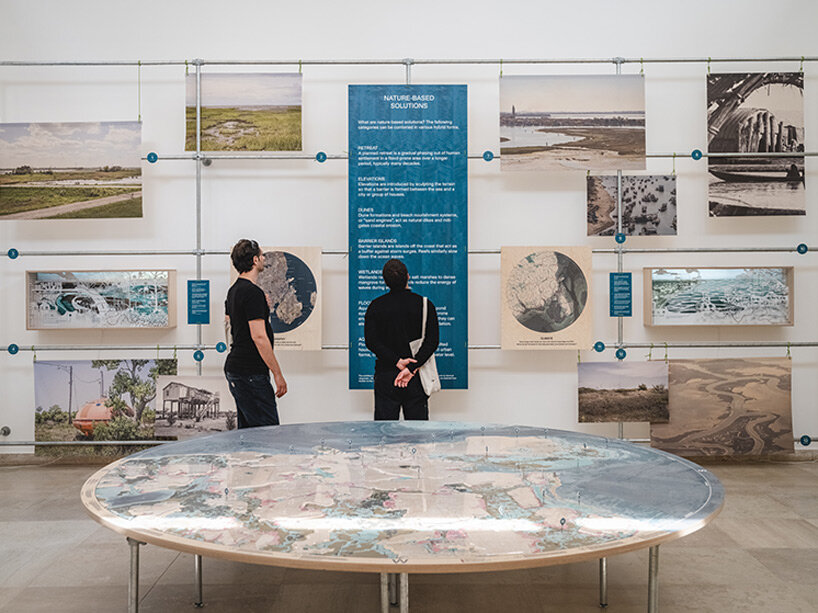
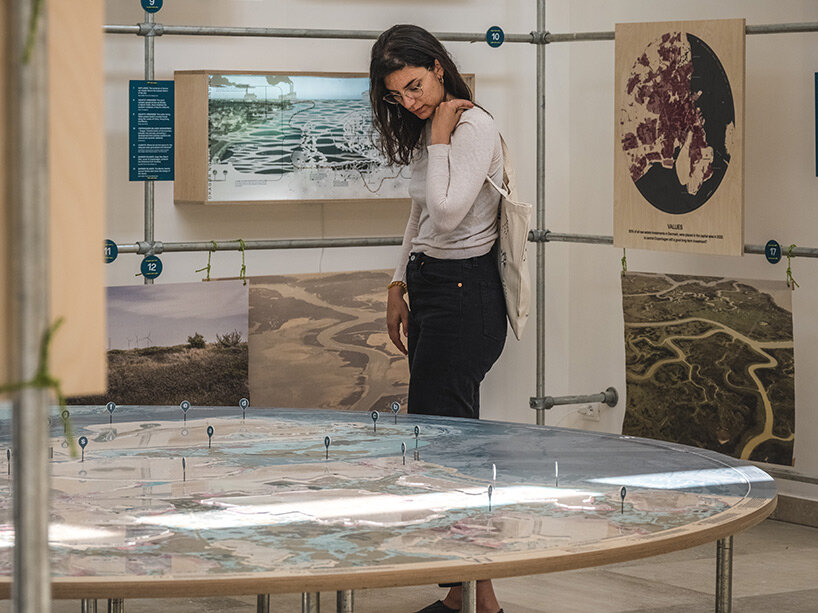
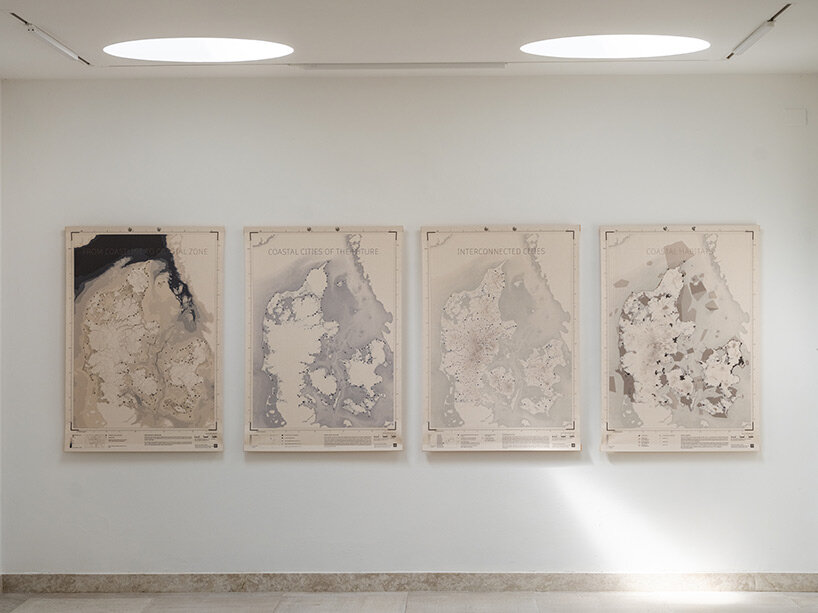
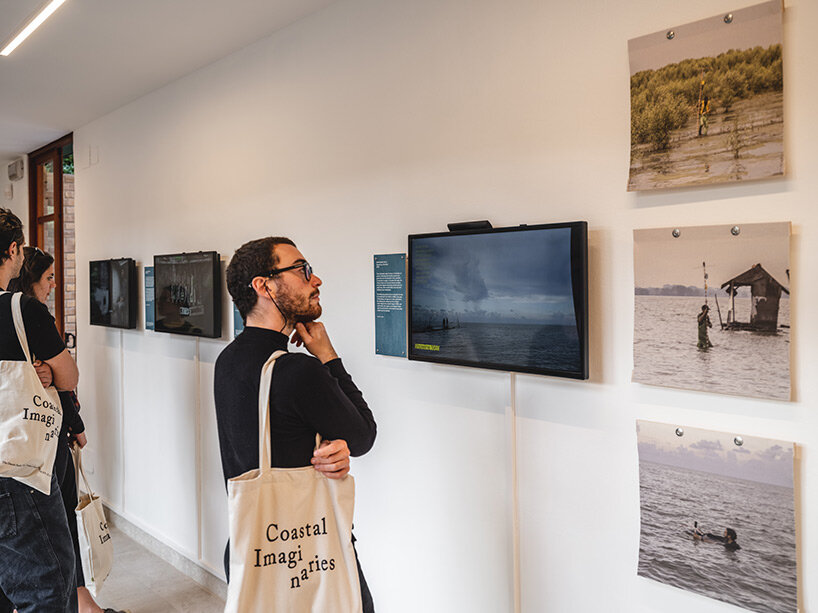
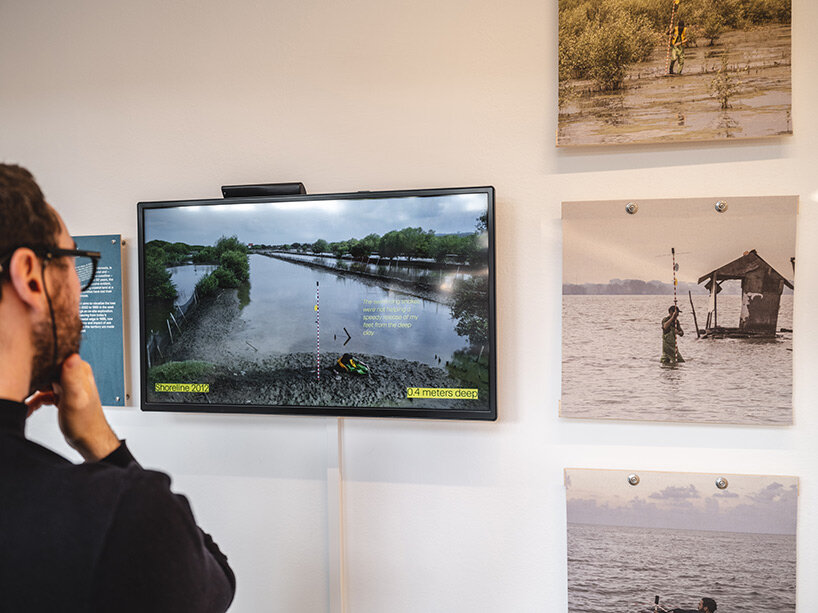
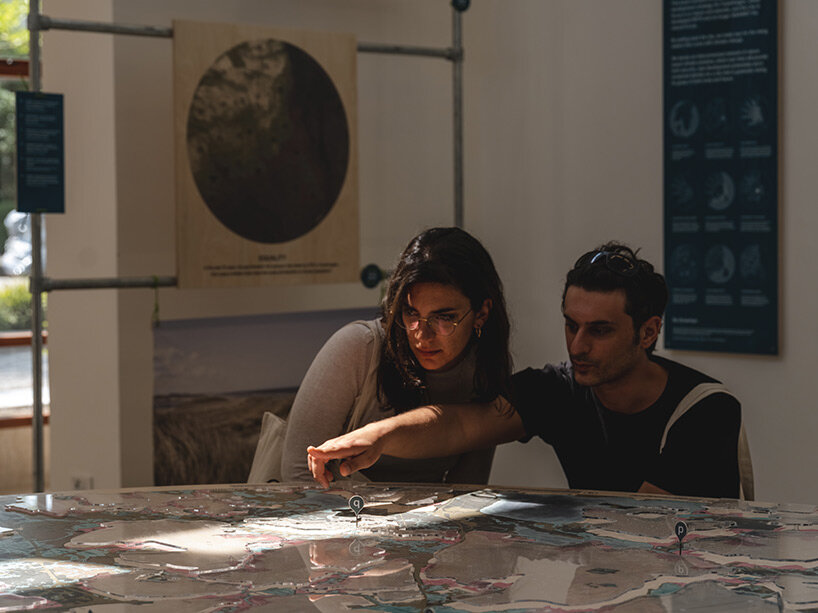
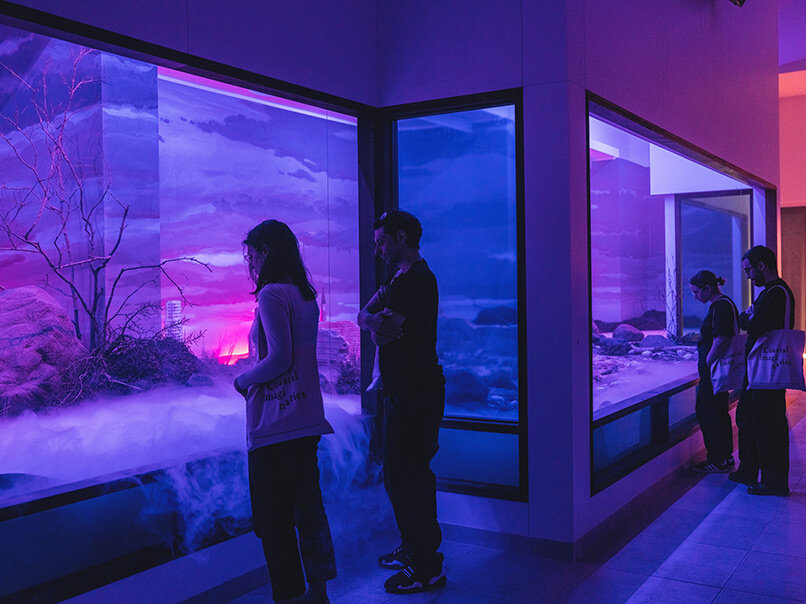
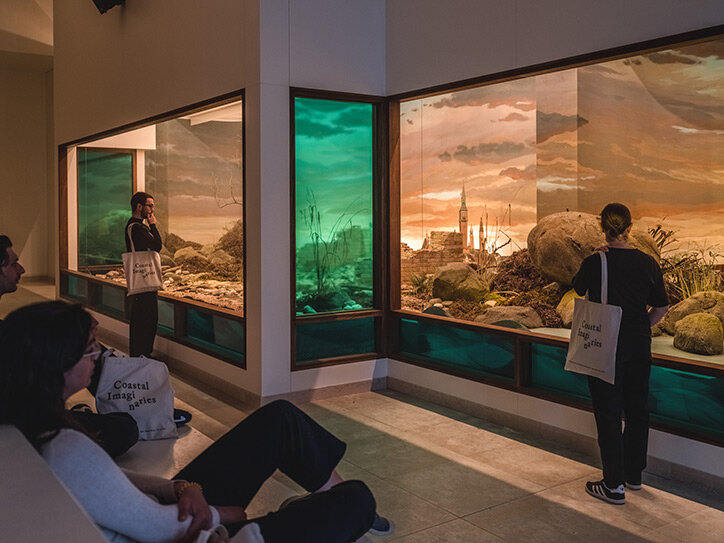
project info:
name: Coastal Imaginaries
curators: Josephine Michau | Schønherr | Christian Friedländer
event: Venice Architecture Biennale 2023
location: Giardini, Venice
photography: Rasmus Hjortshøj
Explore designboom’s ongoing coverage of the 2023 Venice Architecture Biennale: The Laboratory of the Future here, and follow our dedicated channel on Instagram here.
ARCHITECTURE INTERVIEWS (263)
CLIMATE CHANGE (147)
EXHIBITION DESIGN (527)
VENICE ARCHITECTURE BIENNALE 2023 (40)
PRODUCT LIBRARY
a diverse digital database that acts as a valuable guide in gaining insight and information about a product directly from the manufacturer, and serves as a rich reference point in developing a project or scheme.
